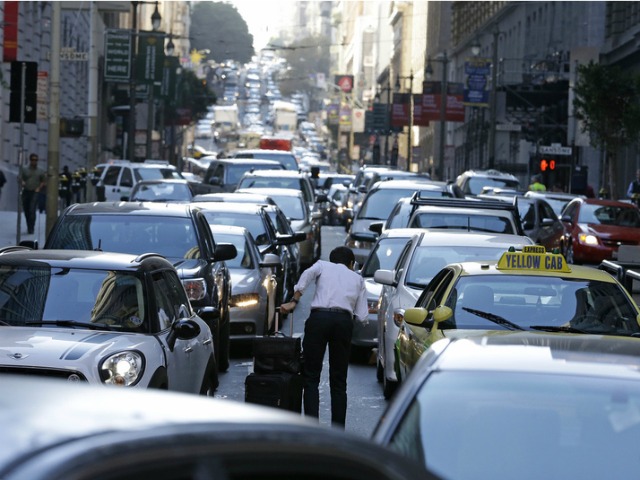Event data recorders, also known as “black boxes,” are now at the center of an argument as to how to raise money for maintaining America’s highways. California has plans to use the boxes to track every mile driven by motorists by 2025, thus equipping the state to charge drivers by the mile.
Hasan Ikhrata, executive director of the Southern California Assn. of Governments, said, “This really is a must for our nation. It is not a matter of something we might choose to do. There is going to be a change in how we pay these taxes. The technology is there to do it.”
The boxes are capable of transmitting the movements of drivers into the bureaucratic system, which concerns parties as different as the Tea Party and the ACLU. The government has used the GPS device in the black box to track citizens illegally before.
America’s Highway Trust Fund, which has heretofore used cash derived from gas taxes, is broke because gas consumption is down and cars are more fuel-efficient. The federal tax has been 18.4 cents per gallon for the last 20 years.
Lee Munnich, a transportation policy expert at the University of Minnesota, said of the proposed tax on mileage, “The gas tax is just not sustainable. This works out as the most logical alternative over the long term.”
Adrian Moore, vice president of policy at Reason, said, “This is not just a tax going into a black hole. People are paying more directly into what they are getting.”
In 2012, the Senate passed Senate Bill 1813, proposed by Sen. Barbara Boxer (D-CA), which required all cars to come with the black boxes by 2015. In 2005, more than 64% of cars across the nation already had them: General Motors, Ford, Isuzu, Mazda, Mitsubishi, Subaru, and Suzuki installed them in 100% of their cars. By 2013, 96% of new cars had the boxes, as well as 150 million older cars.
Some states are already implementing the use of black boxes to track drivers. Oregon has 5,000 drivers paying mileage fees; Nevada has a plan in place; New York City is exploring the possibility, Illinois is using it for some trucks.
But Alauddin Khan, who directs strategic and performance management at the Nevada Department of Transportation, said some drivers were unhappy about the program. He said, “Concerns about Big Brother and those sorts of things were a major problem. It was not something people wanted.”
California may be working with a company called True Mileage, which has developed a device that eschews using GPS and only delivers some information, not everything the device records. Ryan Morrison, chief executive of True Mileage, said:
People will be more willing to do this if you do not track their speed and you do not track their location. There have been some big mistakes in some of these state pilot programs. There are a lot less expensive and less intrusive ways to do this.
But Randy Rentschler, the director of legislation and public affairs for the Metropolitan Transportation Commission in the San Francisco Bay Area, said there was a simpler way to raise cash rather than to use the black boxes. He favored raising gas taxes, saying, “There is no need for radical surgery when all you need to do is take an aspirin. If we do this, hundreds of millions of drivers will be concerned about their privacy and a host of other things.”

COMMENTS
Please let us know if you're having issues with commenting.